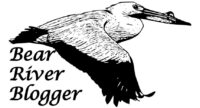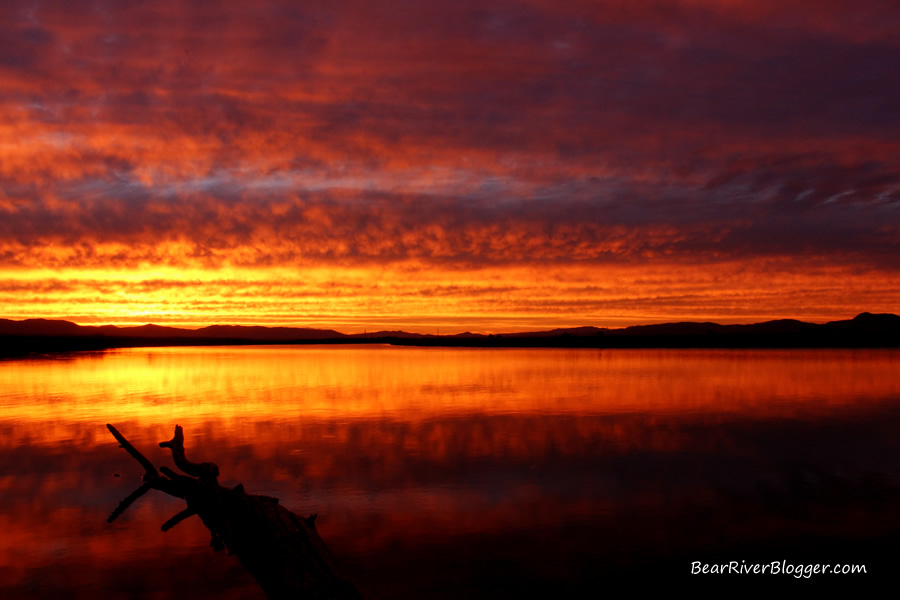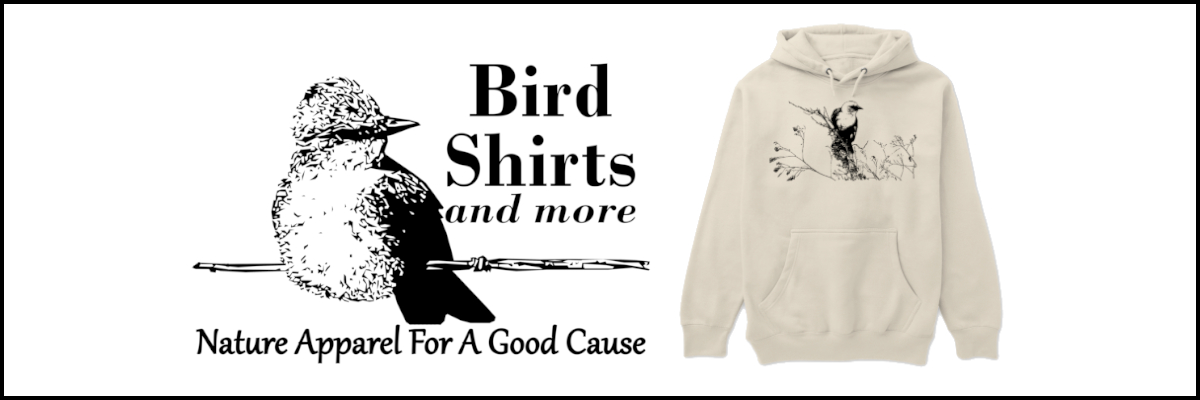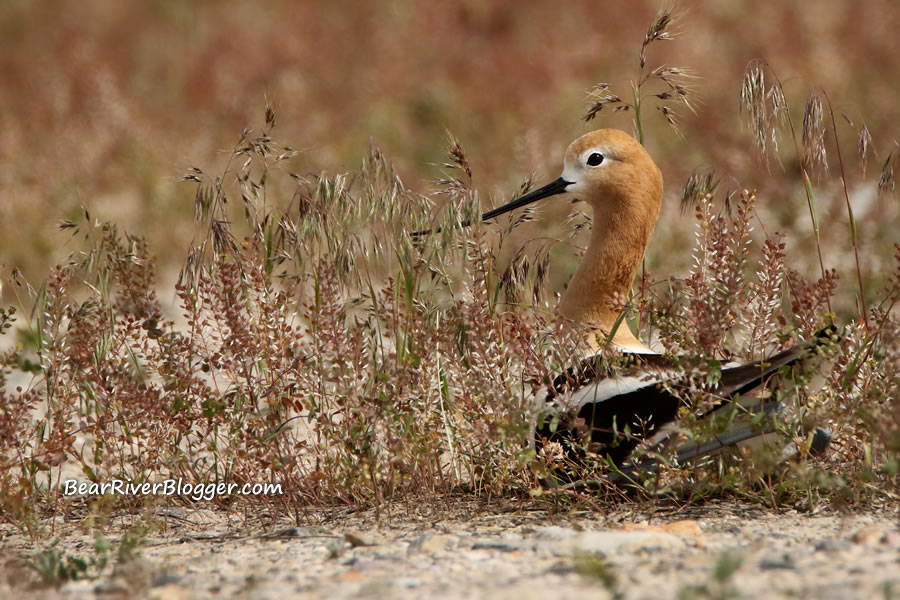It’s no secret one of the main catalysts for my very frequent visits to the Bear River Migratory Bird Refuge is bird photography.
But photographing birds, however, is only a part of what I usually come home with when all is said and done.
The Bear River Bird Refuge also has some great scenery and sunsets throughout the year that a watchful nature photographer can take advantage of if they are keeping an eye open for when the grandeur of nature reveals itself on the refuge.
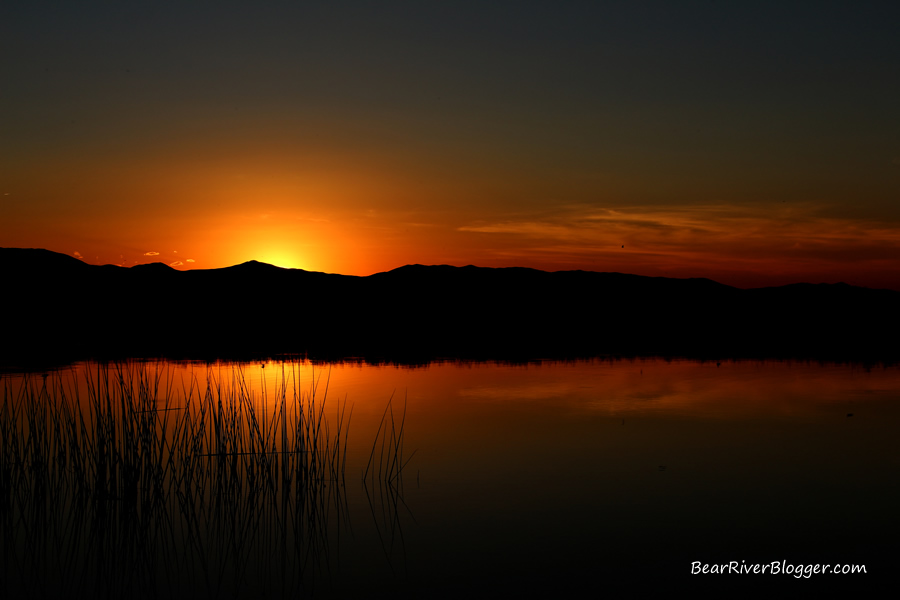
Last night, while combing through some old computer discs, I came across some very old photographs I took on the Bear River Migratory Bird Refuge.
Some are of birds and others are of the great scenery made possible by some of the stunning sunsets that oftentimes cover the refuge.
If truth be known, I really don’t think any of these image are of great quality but they do reflect what can be seen on the refuge if you catch it on the right day.
All of the photographs were taken with a t4i Cannon Rebel DSLR camera. I am of the mindset better cameras make the job easier but they don’t necessarily make a better photo by themselves.
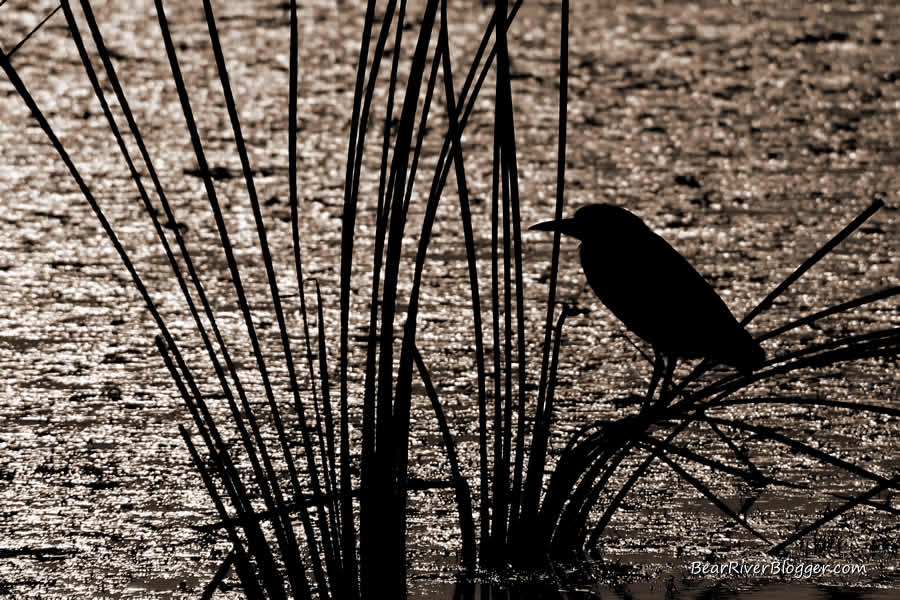
It is the photographer knowing how to capture what they see is what is the most important element of photography.
Knowing how to capture light, thus capturing it in a compositional way that is pleasing to the eye, is the most important factor of photography.
But that simple concept seems to be fighting a losing battle with the ever increasing trend of photographers believing they need a more expensive camera and a more intricate editing programs.
None of those things will help much if the photographer doesn’t first start with learning about light and composition first.
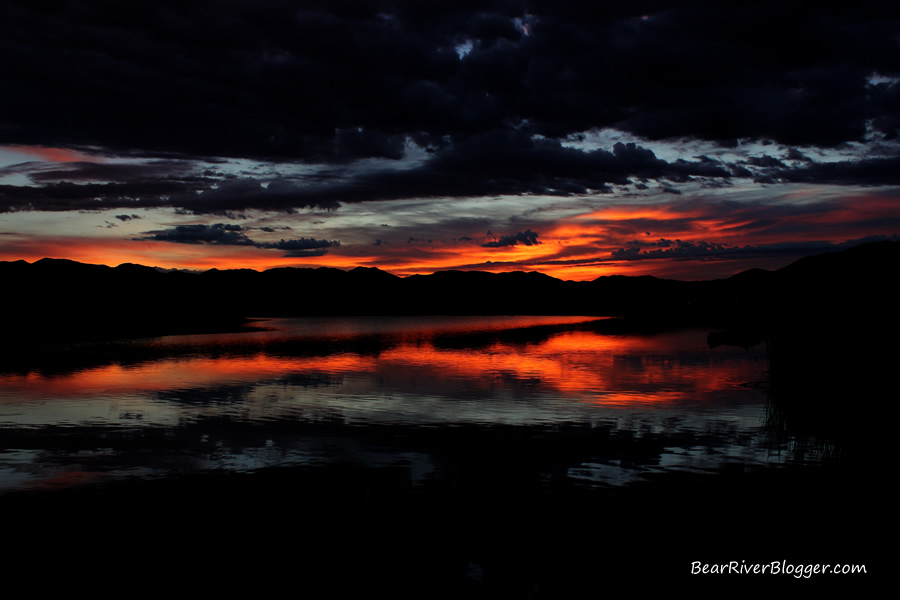
Maybe I am old school but that is how I was taught in my high school photography class several decades ago, and I still believe these concepts are as relevant today as they ever were.
A while ago, I posted an article mentioning some tips for photographing on the Bear River Migratory Bird Refuge.
The only thing I can add to that list is to just get out and photograph something, anything. Practice is the only way a photographer gets better.
While I was thumbing through some of my very old images, I was reminded how awful I was when I first started trying to photograph birds years ago.
It didn’t happen overnight. In fact, it took years for me to finally get to where I felt like I could capture a decent bird photograph.
And truthfully, at it were, I would say I am still learning, but over time your photography skills will get better, as mine eventually did, if you practice at it.
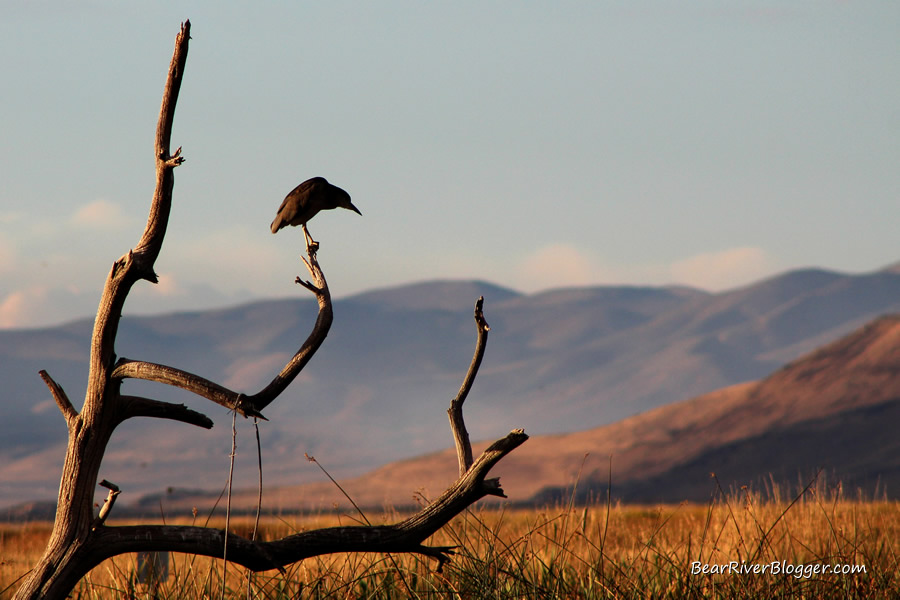
One of the best things I ever did was one summer I put up a hummingbird feeder in my yard for the sole purpose of finally learning how to take a photograph of birds in flight.
I was much more comfortable with landscapes, but my love for birds was pushing me into bird photography so I had to learn what I was doing wrong.
I would literally sit out at the hummingbird feeder every spare minute I had, even if it was only for a few brief moments or so.
I carefully reviewed each image and decided what I liked and didn’t like. I kept trying new things, such as moving the feeder around for different lighting conditions and backgrounds, to see what would improve my images.
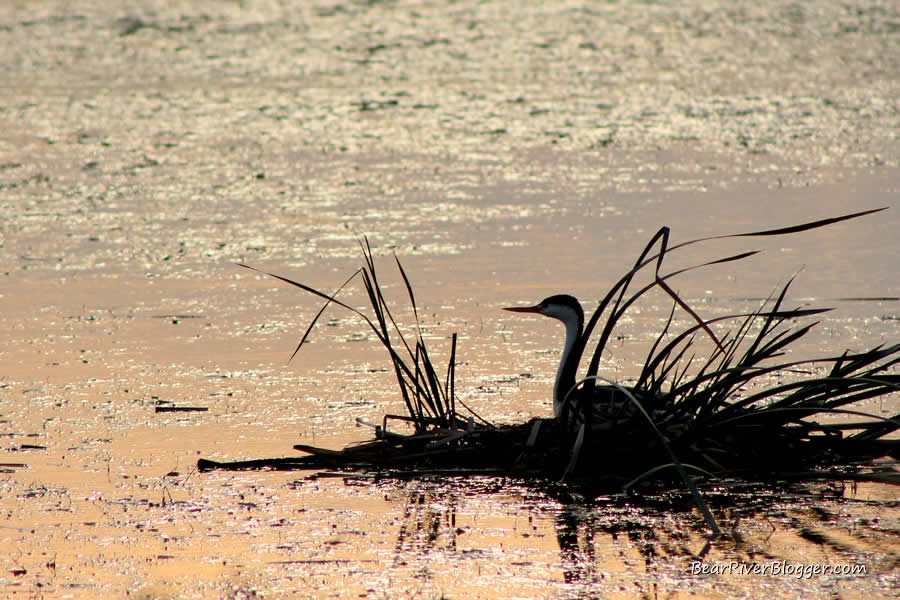
Overtime, that was one of the best educational times for me with regards to photographing birds. I learned what I was doing wrong, and I learned what I needed to do differently, as opposed to how I photographed landscapes and sunsets.
It wasn’t easy I must admit. I was extremely frustrated with my images and wanted to quit several times.
But when I found a good photograph hidden among the piles and piles of rejects, I found a little bit more motivation to keep practicing, and I was able to keep it up until the last hummingbird left for the season.

I still have all of those images and someday I am planning on writing a blog post about exactly what I learned from sitting in my front yard on some very hot summer days with a camera in my hands, many times for hours at a time.
Well, if for nothing else this blog post was a trip down memory lane as some of these images are pretty old for me and I haven’t seen them in years.
It’s good to look through old photographs and see where you were before so you can see how far you have come as a photographer.
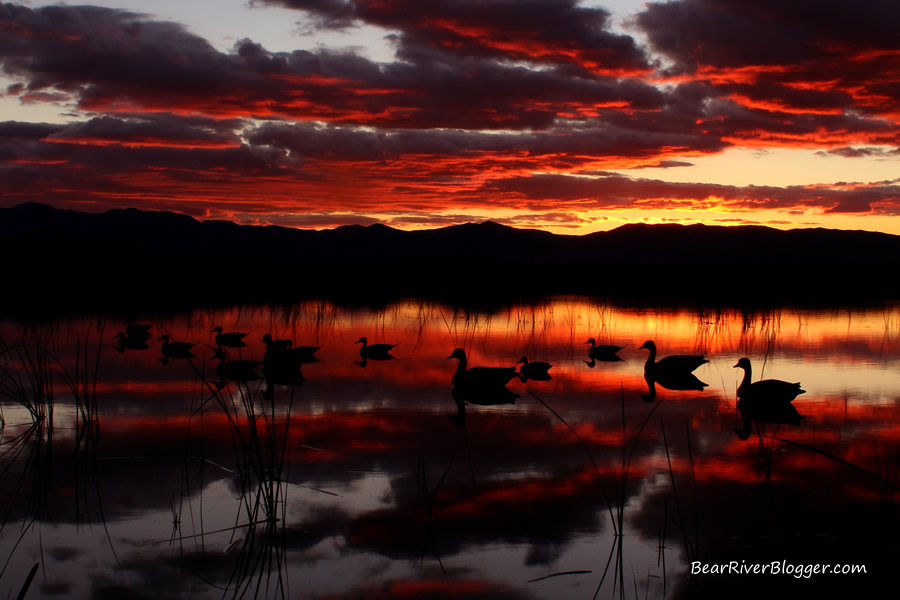
Enhancing Your Photography Skills
For those of you interested in adding to your reading library for outdoor photography, especially for landscape photography, without question my most favorite book is Digital Landscape Photography by Michael Frye.
(As an Amazon Associate, I earn from qualifying purchases.)
I own and have read this book more times than I can remember over the years since buying it.
It deals mainly with landscape photography, but is a great overall reference for just understanding the basic principles of photography in general.
Memorial Day Art Festival
For those of you who are interested in art, particularly bird photography, there is an arts festival in Brigham City, Utah on Memorial Day Weekend that you might be interested in. Here is what the organizers sent to me to help get the word out.
Art on Main – Memorial Day Weekend is an art festival in historic downtown Brigham City held Friday & Saturday of the Memorial Day Weekend (May 28 – 29). One of the six art venues presented is the Cooley Memorial Photography Show & Sale.
Festival organizers are interested in promoting greater awareness of birding and bird photography at the show. Any local photographer who would like to set up a booth and sell birding related items can use the discount code of BRMBR and have their booth fees waived.
Booth reservations must be completed by May 17th. Details about the festival can be found at www.visitbrighamcity.org/artonmain
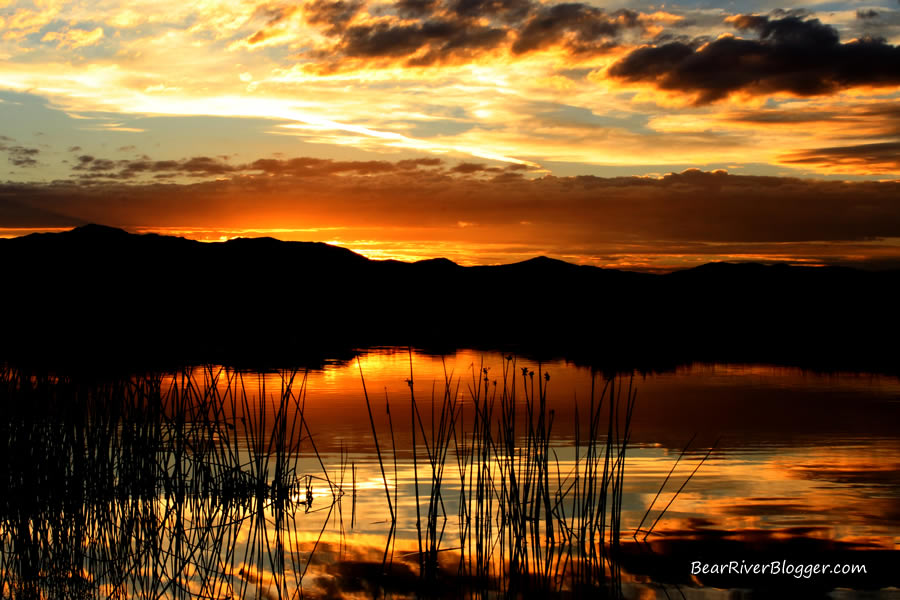
Subscribe
Don’t forget to subscribe to our website for email notifications for future blog posts and notifications such as the upcoming arts festival in Brigham City, Utah.
